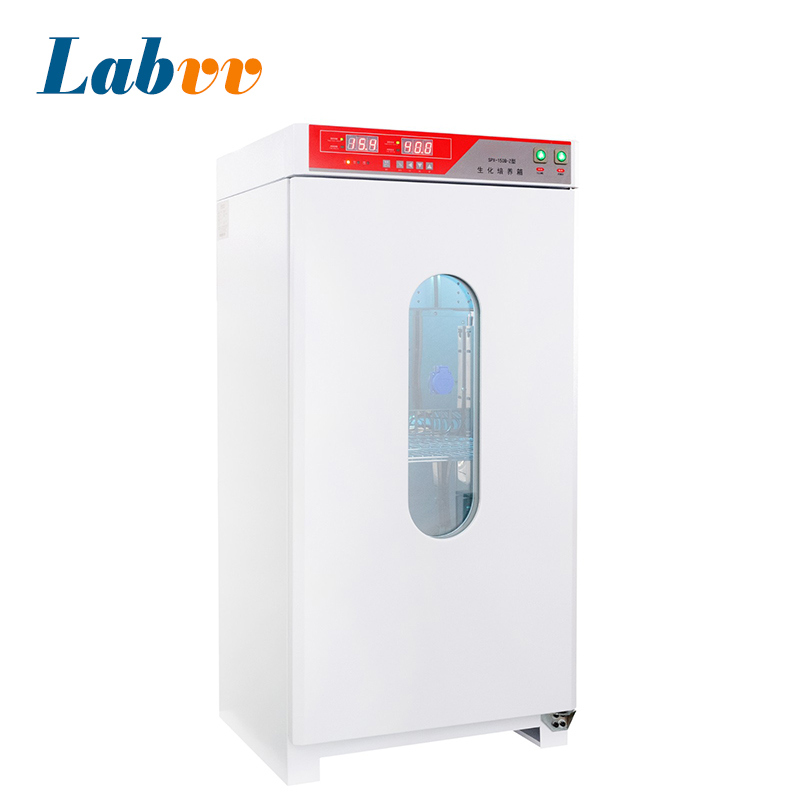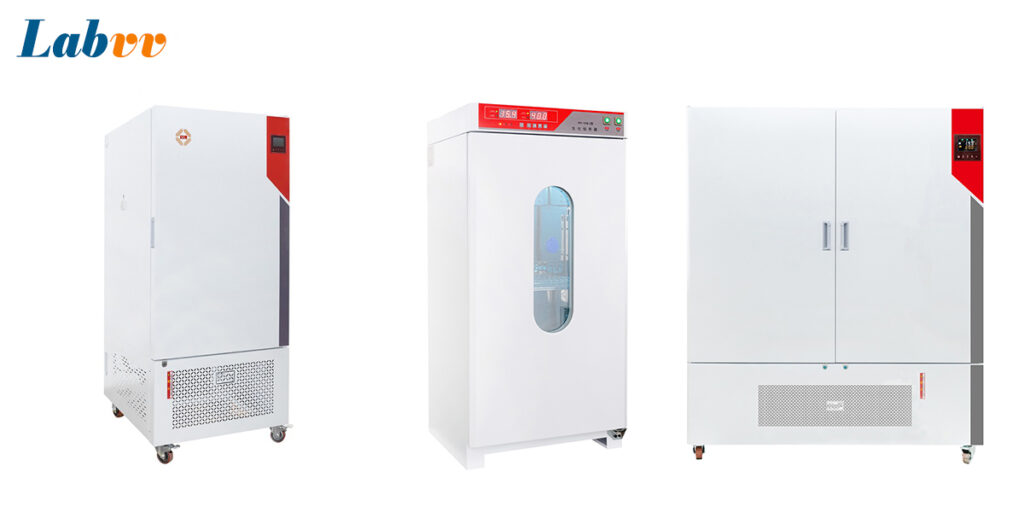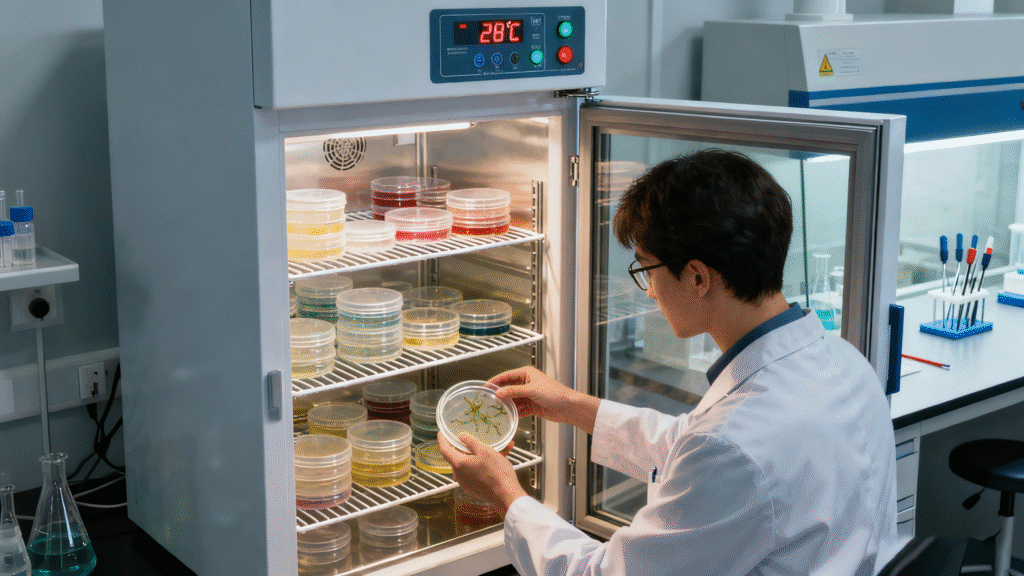1. What Is a Biochemical Incubator?
A biochemical incubator is a laboratory device that creates a stable environment for scientific experiments.
Unlike ordinary incubators, it can both heat and cool, maintaining a precise temperature between 0°C and 70°C.
Because of this flexibility, it plays a vital role in microbial culture, biochemical reactions, and sample storage.
At LabVV, the SPX-100B-Z and BSP-100 models combine accuracy, energy efficiency, and durable design. Their advanced sensors and stainless-steel chambers make them reliable for continuous operation.

2. What Is the Main Purpose of a Biochemical Incubator?
Essentially, a biochemical incubator provides a controlled temperature environment where biological and chemical samples can grow or react safely.
Researchers and technicians use it for:
- Culturing bacteria, molds, and fungi
- Conducting insect and microorganism studies
- Preserving samples and materials
- Performing low-temperature stability tests
For instance, the SPX-100B-Z works perfectly in microbiology and food testing laboratories, while the BSP-100 offers wider temperature control for more advanced experiments.
3. How Does It Differ from a Constant Temperature Incubator?
The key difference lies in temperature versatility.
A constant temperature incubator can only heat, whereas a biochemical incubator can both heat and cool to achieve precise temperature balance.
Furthermore, modern models like BSP-100 use inverter cooling and multi-speed air circulation, which ensure steady performance and prevent temperature fluctuations inside the chamber.

4. What Microorganisms Can Be Cultured?
Biochemical incubators are suitable for a variety of organisms that require controlled environments, including:
- Bacteria, fungi, and molds
- Yeast and actinomycetes used in fermentation
- Plant tissues and insects for biological studies
- Environmental and food testing samples
Because the SPX-100B-Z maintains stable temperatures between 0°C and 50°C, it is ideal for microbial culture experiments that demand consistency and precision.
5. How Does a Biochemical Incubator Work?
The incubator functions through a closed-loop temperature control system. It continuously monitors the internal temperature using sensors and automatically adjusts heating or cooling to match the user’s settings.
In practice, the BSP-100 model integrates a PMMA II control system and a centrifugal fan that evenly distributes air throughout the chamber. This design keeps the temperature uniform and minimizes fluctuations to less than ±0.5°C.
6. How Does It Control Heating and Cooling?
The temperature is controlled through three coordinated systems:
- Heating system: Rapidly increases temperature using high-efficiency heating elements.
- Cooling system: Lowers the temperature through an eco-friendly compressor system with R134a refrigerant.
- Air circulation system: Distributes heat evenly to avoid hot or cold spots.
With its six-level airflow adjustment, frost-free design, and programmable operation, the BSP-100 ensures smooth transitions between temperature phases—critical for sensitive samples.
7. Which Industries Use Biochemical Incubators?
Because of their accuracy and stability, biochemical incubators are used in many industries, including:
- 🧬 Biopharmaceutical research – microbial fermentation and drug testing
- 🧫 Food and beverage analysis – contamination and quality control
- 🌱 Agricultural research – seed germination and insect breeding
- 🧪 University laboratories – biochemical and life science experiments
- 🌍 Environmental protection – water and soil sample testing
The SPX-100B-Z is compact and well-suited for university labs, while the BSP-100 supports long-duration, programmable operations in industrial and testing environments.

✅ Conclusion
In modern research, maintaining a precise and stable environment is essential — and a biochemical incubator makes it possible.
LabVV’s SPX-100B-Z and BSP-100 models combine precision, safety, and user-friendly design. With dual temperature systems, intelligent controls, and energy-saving compressors, they meet GB/T 28851-2012 standards and ensure consistent performance across a wide range of experiments.
💡 LabVV — Reliable Partner for Laboratory Equipment.
Discover more advanced laboratory solutions at LabVV Official Website.
